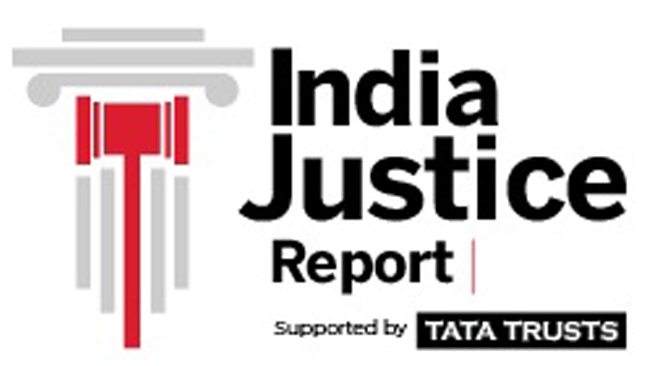
New Delhi,January 28, 2020.
The second edition of the India Justice Report,
India’s only ranking of states on delivery of Justice to people, announced here
today, ranks Maharashtra once again at the top of the 18 Large and Mid-sized
states (with population of over one crore each), followed by Tamil Nadu (2019: 3rd),
Telangana (2019: 11th) Punjab (2019: 4th) and Kerala
(2019: 2nd). The list of seven Small States (population less than
one crore each) was topped by Tripura (2019: 7th), followed by
Sikkim (2019: 2nd) and Goa (2019: 3rd).
The India Justice Report (IJR) is an initiative of
Tata Trusts in collaboration with Centre for Social Justice, Common Cause,
Commonwealth Human Rights Initiative, DAKSH, TISS–Prayas, Vidhi Centre for
Legal Policy and How India Lives. The maiden IJR was announced in 2019.
Through a rigorous 14-month quantitative research,
theIndia Justice Report 2020 once again tracks the progress states have made in
capacitating their justice delivery structures to effectively deliver services
to all. It takes account of latest statistics and situations as they existed prior
to March 2020.It brings together otherwise siloed statistics fromauthoritative
government sources, on the four pillars of Justice delivery–Police, Judiciary,
Prisons and Legal Aid.
The
Report highlights stark conclusions, when aggregated for an all-India picture.
Women comprise only 29% of judges in India. Two-thirds of the country’s inmates are
undertrials. In the last 25 years, since 1995, only 1.5 crore people have
received legal aid, though 80% of the country’s population is entitled to.
Each pillar was
analysed through the prism of budgets, human resources, personnel
workload, diversity, infrastructure and trends (intention to improve over a
five-year period), against the state’s own declared standards and benchmarks.
Basis these themes, the Report assesses how all the 29 states and7 UTs have
capacitated themselves and, out of them, ranks the 18 Large and Mid-sized
states and 7 small-sized states introducing a spirit of competitiveness.
Commenting
on the Report, Justice (retd.) Madan B.
Lokur, said, “While ranking states,
the Report does not play up one state against another—it merely highlights the
strengths and weaknesses of each pillar in each state thereby encouraging
internal assessments for introducing positive changes in the delivery of
justice. The Report fosters competition between states but more importantly,
places the state in competition with itself to provide its people with the best
possible justice delivery.”
Mr. N Srinath, CEO of Tata Trusts, said, "The India Justice Reports of 2019 and
now 2020 make a significant contribution to laying the evidence base for policy
makers and civil society to initiate early improvements for the benefit of us
all."
Ms. Shloka Nath, Head – Policy and
Advocacy, Tata Trusts, said,“The India Justice Report assesses all the pillars of justice delivery–
Police, Judiciary, Prisons and Legal Aid—as one system. The justice system in India is overburdened
and stressed making it difficult for most people to access justice services.
The Report demystifies the system as a whole through statistics across the four
pillars. We hope that like the first report, this second edition too, fosters a
more informed discourse and perhaps most importantly, serves as a tool for
policymakers, and other stakeholders to identify areas of quick repair."
Ms. Maja Daruwala, Chief Editor, India
Justice Report 2019, said,“The justice system has been neglected for too long. It entered the
pandemic era with co-morbidities—underfunding, large vacancies, poor
infrastructure and inadequately trained personnel at all levels. It must be
designated as an essential service and be equipped as a first responder to
provide the public with its services in every situation especially emergencies
and certainly in the on-going pandemic.”
Dr. Rajiv Kumar, Vice Chairman of the NITI Aayog, has said, “Justice delivery is an underlying essential service upon which rests the success of other development goals. I commend the India Justice Report team for bringing out the second edition of the report. At NITI Aayog we have been striving to foster wider discussions on improving overall justice delivery. The IJR 2020 will help the states to identify areas of immediate improvement and the rankings will hopefully give them an incentive to do better."